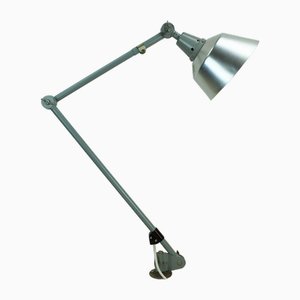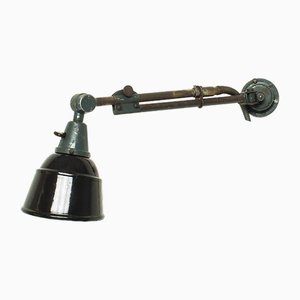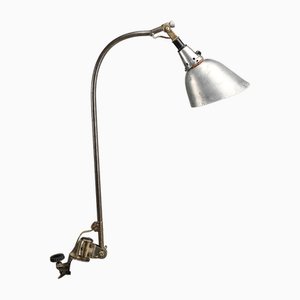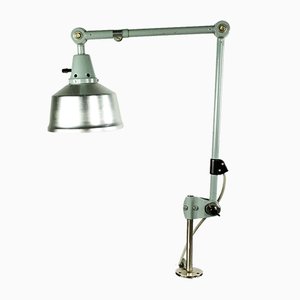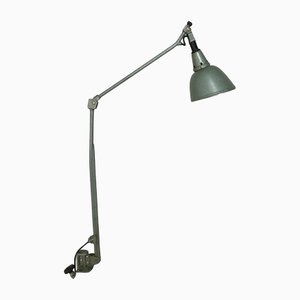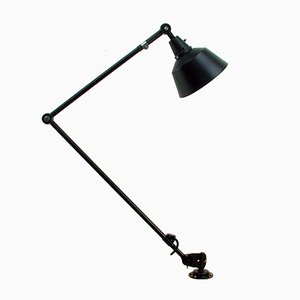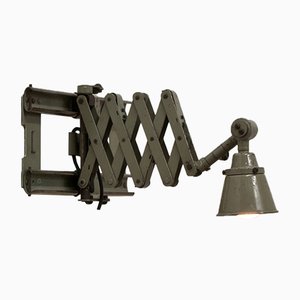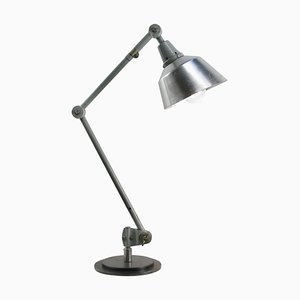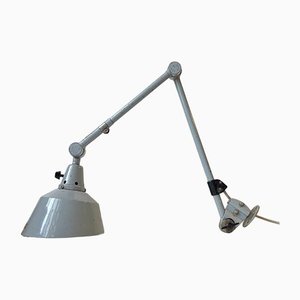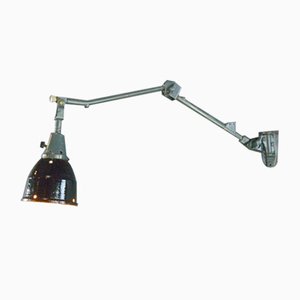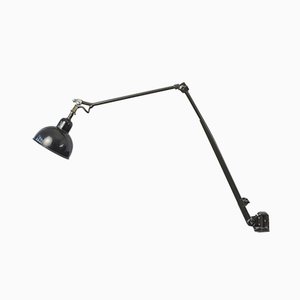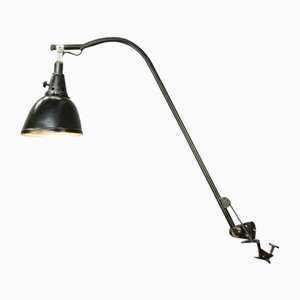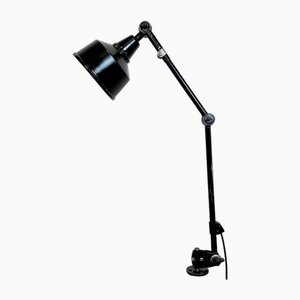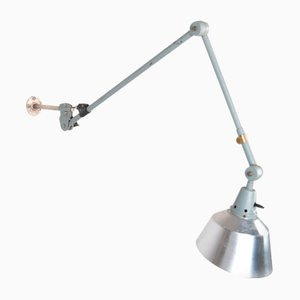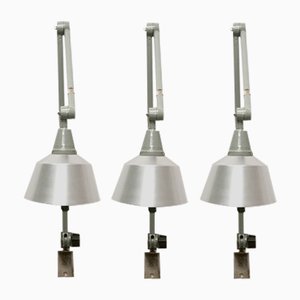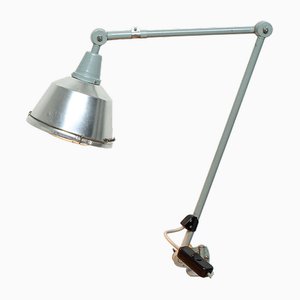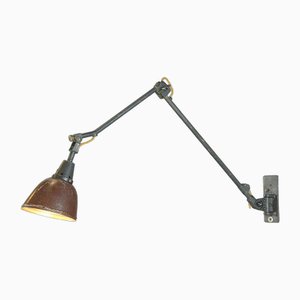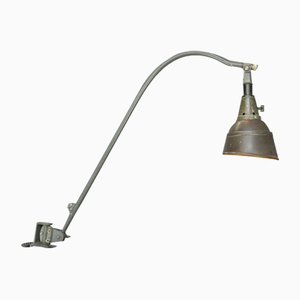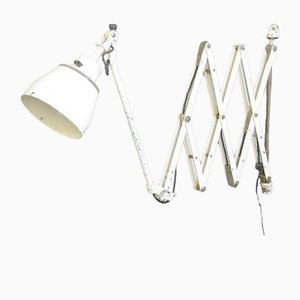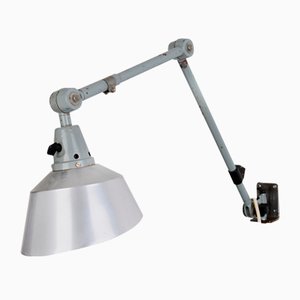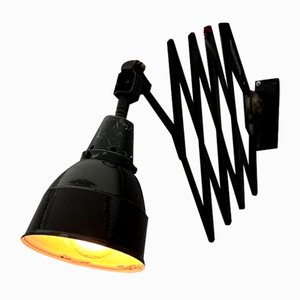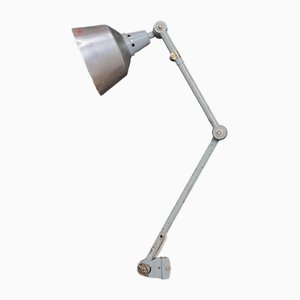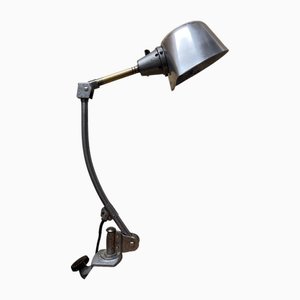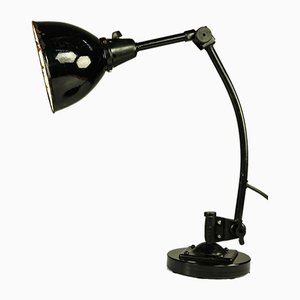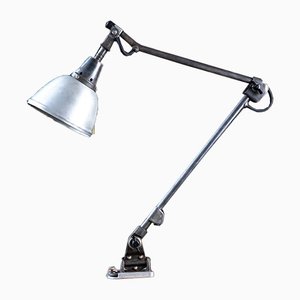Curt Fischer (1890-1956) was a German industrial designer and engineer who is credited with inventing directional light with the first articulated, steerable light. Fischer’s designs were a particular inspiration to the seminal designer-architect Walter Gropius and the Bauhaus school, which laid the foundations of modernist design and architecture.
No biographical information is available on Fischer’s formative years and education, however it is known that Fischer worked as an engineer at IWA (Industriewerk Auma), a factory which produced metal parts and tools for the production of industrial porcelain. Up until the 1920s, the only available factory lighting was ceiling-mounted pendants, which provided static light and often casted unwanted shadows. Even before well known desk lamp designs by Christian Dell or Marianne Brandt were conceived, Fischer realized there was a need for flexible lighting in industrial settings. Originally designed to use at IWA, Fischer created a light that could be articulated and steered. The first prototype, which Fischer sketched and made himself, featured articulated tubes in which the cable could pass and bend freely. In 1919, he established the lighting brand Midgard as a subsection of IWA, which was newly acquired by Fischer. Originally designed to use at IWA, the Scissor Lamp (1919), which was patented on November 26, 1919, featured articulated tubes in which the cable could pass and bend freely. In 1922, Fischer designed the first glare-free reflector, which was rotatable and asymmetrical. The reflector ensured optimal directed light and protected the eyes of the factory worker using the light.
Fischer’s lights were used in industrial settings including on ships, in workshops, and in the private sector. Walter Gropius admired Fischer and was an active supporter of his experimental products. Gropius used Midgard lights in the living room of his house at the Dessau Bauhaus. The metal workshop at the Weimar Bauhaus was illuminated with Midgard lights and served as a model for the students’ designs.
Curt Fischer’s collection for Midgard includes the scissor-like 112 Trellis Wall Light (1922); the 113 Table Light (c. 1925), which is also known as the Whip Lamp due to its curved stem; the articulated 114 Hinge Lamp (1920s); the Machine Lamp (1930s) which features patented, maintenance-free joints; and the Spring-Loaded Lamp (1950s).
Fischer passed away in 1956.
Today, Midgard is owned by David Einsiedler and Joke Rasch, founders of of the Hamburg-based furniture company PLY, who continue to produce Fischer’s original designs.


